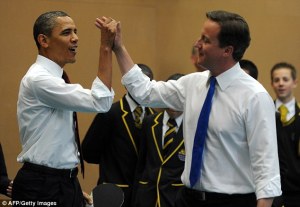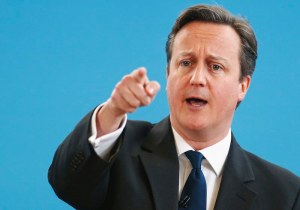‘You see what power is – holding someone else’s fear in your hand and showing it to them!’ – Amy Tan
In a blog post soon to follow I will explore the reasons why social bonds at a local level are so strong, namely because they are key to the securing of both psychological and material support for the individual despite, or perhaps because of, the loosening of traditional family bonds. The notion of the tribe is an extension of the smaller family group and so is bound up historically in satisfying the needs for material provision as well as of safety and security. The reader will note then, that many basic needs are sought to be satisfied within the wider tribe context, and that basic needs and tribalism are thus closely bound together.
The UK general election saw the Conservative party defy the results of all opinion polls taken in the run up to polling day on the 7th May and achieve not only the most number of seats in the house, but also a slim parliamentary majority. So from a power/resource perspective why did this unexpected outcome take place and how was it achieved?
It is understood that people are generally more motivated to avoid the loss of that which is already possessed than to take hold of that which is not yet within their grasp (Kahneman & Tversky, 1984)1. In this sense the average person is naturally risk averse and more inclined towards the fear of loss than towards the possibility of attainment. Despite the broad desire for an aspirational message within UK politics the reality is that, whether it is palatable or not, a finely crafted campaign based on fear that seeks to push enough of the right buttons at an individual level, will always triumph over a message of hope. This was summed up on the day of the result by House of Lords peer and former Liberal Democrat leader Paddy Ashdown who, in reference to the Conservative election campaign, lamented that ‘the politics of grievance and fear has won over hope’.
The Conservative party’s campaign was successful primarily because it managed to tap into the twin fears of loss – of economic recovery so far achieved – and the threat posed by an external tribe. The ancient rivalry between the English and the Scots had been stirred up, along with the threat posed by the potential influence of a large number of elected SNP MPs over a Labour-led government and the detrimental effect that this might have upon English interests.
The accuracy of the information being presented on both counts, either with regard to the strength of the economic recovery or of the likelihood of the threat posed to English interests, mattered less than the fear that existed in the minds of many English voters that the suggested outcomes might become a reality.
The Conservative party’s relationship with Scotland has been highly ambivalent. David Cameron’s heartfelt ‘we want you to stay’ plea to the Scottish people in the run up to last September’s independence referendum contrasted markedly with his hardened tone the day the result was confirmed and when it was confirmed that independence had been rejected. At this point the powers that it had been agreed would be devolved to Scotland were suddenly and unexpectedly conflated with the devolution issue as it applies across the whole of the UK – a valid but very separate debate that made the previous promises appear disingenuous and was a move that smacked of political opportunism. The negative rhetoric around Scotland and the legitimacy of its place at Westminster became a key feature of the Conservative party’s campaign in the run up to polling day and, while ultimately securing a number of additional English votes, also served to further alienate many Scottish voters, especially those who had out of caution voted against independence a few months earlier. The ‘we want you to stay’ speech began to sound increasingly inauthentic and yet, with a slim parliamentary majority now secured, Cameron’s tone, along with Boris Johnson’s, suddenly softened again and a declaration was made of the intention to govern the United Kingdom as ‘one nation’. The Scottish people were back in favour again. This picking up, discarding, and picking up again of groups of people (including whole nations as well as other political parties such as the Lib Dems) by the UK’s current political leaders is unlikely to be forgotten quickly. Within the context of decades of similar experiences in which Scotland has found itself at the wrong end of a political system that places governments in power and leaders in 10 Downing Street that it as a nation did not vote for, the long-term damage done by Cameron to his now wished for ‘one nation’ may be irreparable. The Tory leadership’s questioning of the legitimacy of a minority Labour administration influenced by SNP MPs under this same system, versus Cameron’s appeal to the Scottish people as an integral and vital part of the United Kingdom, only adds to the damage already done.
The Limitations of Political Intervention
In light of this, one question to consider is how much scarce resource is the political process truly able to exert control over and, therefore, to what extent is the political arena the true centre of power in western states that present themselves as democracies?
All too often expectations are placed upon governments to find solutions for society’s ills and to bring the nation in question closer to some form of utopia, however such an ideal might be defined. This expectation for politics to fulfil more than it can achieve is rooted in a mistaken belief that the political process is able to control access to resources that meet a vast array of needs and wants, from the basics that are required to maintain life, to the resources that can reverse the breakdown of society. But how did this come about, and to what extent are such expectations realistic?
The need for people to be led by a leader has also become the norm within contemporary politics, but why is such emphasis placed upon the outward appearance of competence? For many years the ability to be ‘statesmanlike’ has become a vital quality for any potential leader, but what need does this really meet for the members of the voting public? It should be noted that the national socialist agenda came to prominence in 1930s Germany during a period of economic and social turmoil, a situation that was exacerbated by leadership weaknesses in traditional national institutions such as the state church, and the expressed need within the populace for leadership and direction. The particular nature of that direction was less important than having a direction at all and a leader who could lead the people there.
Of note within this context is the move within western societies towards secularism and that this change has mirrored an increased emphasis upon the outward ‘leadership qualities’ of potential figures. Simultaneously, however, the gap between that which is promised whether overtly or by implication ie. through slogans and campaigns, and that which is in fact delivered through political means, has grown. There remains for many a deep seated desire to have all needs and wants fulfilled through the action, ability and power of one individual. It is often observed that the UK’s political arena has become increasingly presidential in nature, however, much more than this is its increased tendency towards the messianic and for the needs and wants being expressed to be increasingly spiritual in nature. The need to find answers to questions that extend far beyond the scarce resources that politicians have secured possession and control over does not, so it seems, prevent such questions being posed, and nor does it prevent politicians endeavouring to present solutions to such questions. The people expect, but the politicians are more than happy to play along. The increased expectations now placed upon the shoulders of contemporary political leaders to meet needs which cannot be effectively met through the political arena, are paralleled by the erosion of the stability of the family unit in many western societies; thus there is an increased need for a strong and dependable figure fitting a God-like role. Such an individual is required to possess both the ability and the desire to fulfil a broad range of each person’s needs and wants including material provision, security and shelter, extending to their need for nurture, the provision of guidance and wisdom, and ultimately the enablement of that individual to achieve self-actualisation.
An example of the limitations of political intervention to address a crucial issue is that of the breakdown of local community as expressed in the rise of loneliness within the UK. The flip side of the same coin but at the macro scale is the ticking time bomb of capitalism. Thomas Piketty2 clearly outlines the fundamentally flawed nature of this model based as it is upon relentless and unsustainable growth within the confines of a finite planet possessing finite resources. On this issue no mainstream political party or politician bothers even to start a debate as to do so would either remove them from the sphere of the ‘acceptable debate’ agenda, thereby risking damage to their reputation, or because it is implicitly understood that the issue is one upon which it is far beyond the capacity of any politician or political movement to exert meaningful change. (It is possible too, of course, that a politician might avoid tackling the debate for the reason that they are personally invested in the current system and would wish to maintain the status quo to their own advantage). The question then is, if it is not our political rulers exercising control over the scarce resources in question, who does? And who is it that occupies the background spaces and pulls the strings that drive the capitalist agenda?
David Cameron and the Conservative party have promised much and threatened more during their quest for re-election. However, the extent of change that they will be capable of meaningfully effecting during the coming five years will be a direct result of policies that result in the steady passing of scarce resources into fewer and fewer (unelected) hands, and the economic forces that operate at a global rather than at a national scale.
1 Kahneman, D. & Tversky, A. (1984). Choices, values and frames. American Psychologist, 39, 341-350
2 Piketty, T. (2014). Capitalism in the 21st Century. Harvard University Press



With only 50% of the economy in the control of the government, the resources (in terms of capitalism) are surely held by the Bank of England & big business leaders. The power of the parties is overrated and by using the resource of media they try and appear more powerful than they really are. Time for the revolution!
LikeLiked by 1 person